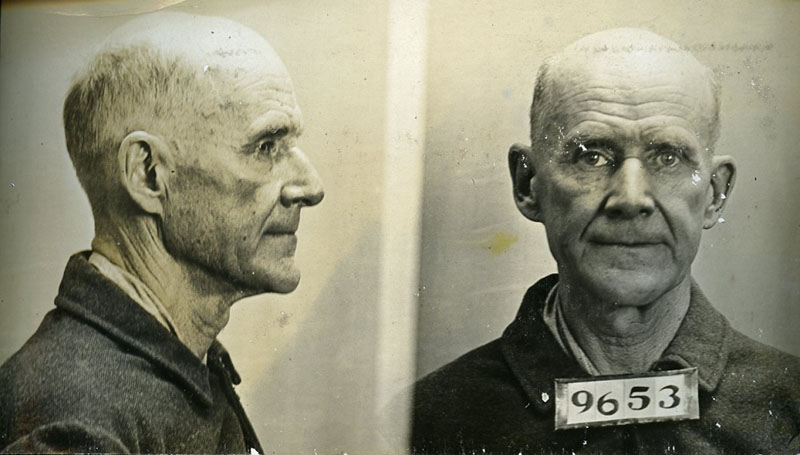Introduction
The so-called Sedition Act of 1918 amended the 1917 Espionage Act, replacing Title I, Section 3 with an expanded list of prohibited acts. After nearly a year of war, violent assaults against German Americans, radicals, and pacifists were increasing. The most shocking attack occurred on April 5, 1918, when miners in Collinsville, Illinois, lynched Robert Prager (1888–1918), a German immigrant accused of making pro-German statements.
Attorney General Thomas Watt Gregory (1861–1933) argued that local vigilantes took matters into their own hands because the federal government did not have enough power to stop “disloyal utterances.” The Sedition Act empowered the Justice Department to move aggressively to silence dissent. In June 1918, Eugene V. Debs (1855–1926), founder of the Socialist Party and a perennial presidential candidate, was arrested for denouncing the war as a capitalist-driven pursuit of profits.
The war-fueled obsession with seditious speech cooled after the Armistice. President Woodrow Wilson (1856–1924) eventually pardoned more than two hundred people convicted of violating the Espionage Act, but he left Debs in prison. In 1920, Debs ran for president from his jail cell (for the fourth time) and received nearly one million votes. A year later, President Warren G. Harding (1865–1923) commuted his ten-year sentence to the five years Debs had already served.
—Jennifer D. Keene
U.S. Statutes at Large, volume 40 (1917–1919), 65th Congress, 553–554. Available at https://www.loc.gov/item/llsl-v40/.
Sec. 3. Whoever, when the United States is at war, shall willfully make or convey false reports or false statements with intent to interfere with the operation or success of the military or naval forces of the United States, or to promote the success of its enemies, or shall willfully make or convey false reports or false statements, or say or do anything except by way of bona fide and not disloyal advice to an investor or investors, with intent to obstruct the sale by the United States of bonds or other securities of the United States or the making of loans by or to the United States, and whoever, when the United States is at war, shall willfully cause or attempt to cause, or incite or attempt to incite, insubordination, disloyalty, mutiny, or refusal of duty, in the military or naval forces of the United States, or shall willfully obstruct or attempt to obstruct the recruiting or enlistment service of the United States, and whoever, when the United States is at war, shall willfully utter, print, write, or publish any disloyal, profane, scurrilous, or abusive language about the form of government of the United States, or the Constitution of the United States, or the military or naval forces of the United States, or the flag of the United States, or the uniform of the Army or Navy of the United States, or any language intended to bring the form of government of the United States, or the Constitution of the United States, or the military or naval forces of the United States, or the flag of the United States, or the uniform of the Army or Navy of the United States to come into contempt, scorn, contumely, or disrepute, or shall willfully utter, print, write, or publish any language intended to incite, provoke, or encourage resistance to the United States, or to promote the cause of its enemies, or shall willfully display the flag of any foreign enemy, or shall willfully by utterance, writing, printing, publication, or language spoken, urge, incite, or advocate any curtailment of production in this country of any thing or things, product or products, necessary or essential to the prosecution of the war in which the United States may be engaged, with intent by such curtailment to cripple or hinder the United States in the prosecution of the war, and whoever shall willfully advocate, teach, defend, or suggest the doing of any of the acts or things in this section enumerated, and whoever shall by word or act support or favor the cause of any country with which the United States is at war or by word or act oppose the cause of the United States therein, shall be punished by a fine of not more than $10,000 or imprisonment for not more than twenty years, or both: Provided, That any employee or official of the United States Government who commits any disloyal act or utters any unpatriotic or disloyal language, or who, in an abusive and violent manner criticizes the Army or Navy or the flag of the United States shall be at once dismissed from the service. Any such employee shall be dismissed by the head of the department in which the employee may be engaged, and any such official shall be dismissed by the authority having power to appoint a successor to the dismissed official.



























































































































































































































